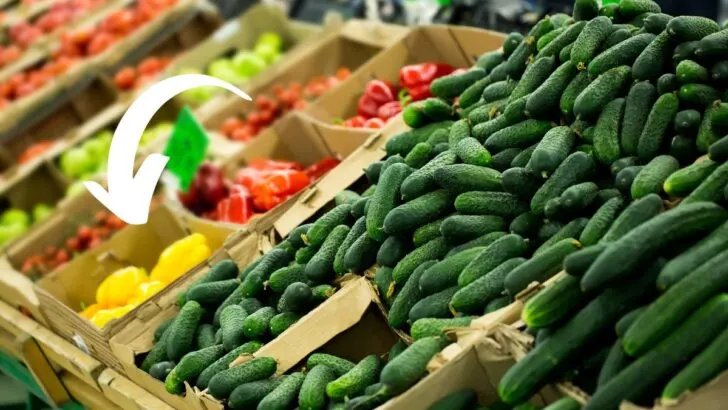If you have ever been to the supermarket, you have probably seen lemons lying in the vegetable section. Are lemons a fruit or a vegetable?
A lemon is a fruit and not a vegetable. It’s considered a citrus fruit, just like grapefruits and oranges. Since it also has seeds and grows from the flower, lemons are categorized as fruit.
Still, confused about how it is a fruit and is sometimes placed in the vegetable section?
Fret not, as, in this guide, you will get a more comprehensive picture of why lemons are classified as fruits and how you can differentiate between a vegetable and a fruit. So, without any further ado, let’s get started.
Is Lemon Considered A Natural Fruit?
Lemon is not a natural fruit but rather a man-made fruit that is a fusion between citron fruit and bitter orange.
Yes, there’s a lot we don’t know about the citrus family, and we’re going to dig a little deeper today.
First, let’s get the lemons straight. For those who are unfamiliar, citron is mainly a citrus fruit, one of the three main varieties used to create the citrus fruits we currently know.
A citron has an absurd portion of the pith (white part beneath the lemon zest), with the pulp within it barely visible and sometimes missing entirely.
The outer skin is exceptionally fragrant and ranges in texture from soft to roughened up to deranged and too wrinkly.
Citron is also known as Buddha’s hand because it resembles a palm with many fingers and is highly fragrant.
The bitter orange is a hybrid of a pomelo and a mandarin. Some citrus fruits that we currently know are man-made hybrids, while others are natural hybrids. However, bitter orange is a naturally occurring hybrid.
Now you must be wondering if there are bitter oranges. There must be sweet oranges too. Yes, you are right! But sweet oranges are apparently a cross between a pomelo and a mandarin, except they are sweet.
How To Tell The Difference Between Vegetables And Fruit
Let’s begin with the fundamentals before debating if lemon is a fruit or a vegetable. So, how do you know if something is a fruit or not?
Some distinguishing characteristics of vegetables and fruits are listed below.
- Taste
Even if the taste isn’t a significant factor in determining if something is a vegetable or not, it may still be helpful in the majority of cases.
Fruits have a wide variety of flavors. For example, they can sometimes be sour, sweet, tart, or bitter.
However, if you’ve ever tasted vegetables, you’ve probably noticed that each has a distinct flavor. Most of the time, you won’t be able to name or categorize the flavor.
- Look Out for The Seeds
One of the primary distinctions between fruits and vegetables is that fruits have seeds while vegetables do not.
It’s because fruit is a type of ovary that contains ovules. After reproduction, these ovules develop into seeds.
Vegetables, on the other hand, are solely a part of the plant, such as roots, leaves, and so on; there is no reproduction here. As a result, they have no seeds either outside or inside of them.
So here’s a quick tip for your future hunts: if you see any vegetable that has seeds, remember it is actually a fruit and not a vegetable.
- Nutrition
Vegetables and fruits are both high in fiber and low in fat. However, most fruits are high in sugar, whereas only some vegetables, such as starchy vegetables (beet and potato), are high in sugar.
Now, let’s get to the main point, which is, what makes a lemon a fruit?
What Qualifies A Lemon As A Fruit?
Given the distinctions between vegetables and fruit discussed above, it is easy to conclude that lemon is a fruit rather than a vegetable.
Let’s look at a few significant reasons why lemon is classified as a fruit rather than a vegetable.
Lemons Are a Cross Between Two Other Fruits
One of the significant factors that distinguish lemons from vegetables is that they are a man-made cross between two fruits.
Initially, two fruits, including citron and bitter orange, were crossed to create a new fruit known as a lemon. As a result, the lemon’s entire family line demonstrates that it is a fruit.
Lemons Have Seeds
There is no reason to suspect that lemons don’t have seeds. The seeds are visible inside the lemon; once cut, you will see many of them within just one lemon!
This explains why lemons are classified as fruits rather than vegetables.
Lemons Develop From the Flower
If you’ve ever been to a lemon farm, you’ve probably discovered white beautiful flowers sprouting from the lemon trees.
These flowers are in charge of transforming their ovaries (the flower’s reproductive organs) into lemons.
If lemon was indeed a vegetable, it must have come from some other element of the plant, such as the leaves or roots.
Instead, it grows from the ovary of the flower, making it a fruit.
Therefore, this ultimately shows how lemon is classified as a fruit, not a vegetable.
Why Are Lemons Sold In The Vegetable Section?
Now you know why lemons are classified as a fruit, you must be puzzled at why they are placed in the vegetable section if they are fruit.
We know how perplexed you are to see lemons in the grocery section right beside vegetables. But that has nothing to do with lemon’s fruit nature.
It has more to do with how the supermarket arranges its produce rather than anything else.
Lemons are sold alongside limes, kiwis, oranges, apples, bananas, and any other fruit you can think of in other supermarkets.
And, since lemons can be put into savory dishes, they may be found in the produce section, but that doesn’t mean anything.

Lemon Facts You Should Know
If you’re more interested in lemons now, read on for some more fascinating lemon facts!
- Lemon Plants Bear Fruit All Year
Lemon plants make fruits all year, which explains why there are so many lemons. In fact, a single lemon tree can yield approximately 600 bags or gallons of lemons per year!
The one and the only thing that lemon plants need to produce fruit year after year is adequate moisture content.
If the water content is insufficient, the plants will not flower. And, of course, no flowers means no lemons.
- Lemons Come in a Wide Range of Variety
Are you aware that there are more than 30 different types of lemons in the world? Lemons may appear to be a simple fruit, but there are numerous variations in the number of seeds, color, size, and even taste.
Today, lemons sold in markets are referred to as Lisbon lemons. Other varieties include Eureka lemons, which have more juice and fewer seeds.
- Lemons Are Packed With Vitamin C
Most of us are aware that lemons are high in Vitamin C, but do you know that drinking lemon juice daily provides 50% of our total Vitamin C needs daily?
Yes, an adult requires approximately 65-90 milligrammes of Vitamin C. The vitamin C content of lemon is 31 milligrammes.

- Antibacterial Properties of Lemon
Ascorbic acid and citric acid are the two types of acids found in lemons. These two acids are very effective at killing bacteria.
Bacteria can only survive at a certain pH. However, the antioxidants in lemons can cause the pH to drop, killing most bacteria.
- Lemon Has A Lovely Aroma
Lemons have a refreshing scent but are somewhat bitter. We can’t say the same about lemon flowers, whose scent is known as the “happiest fragrance on the planet!”
Lemon blooms have a subtle but refreshing lemon scent. This is why they also draw a large number of butterflies.
- Temperature Changes Cause Lemons To Change Color
The lemons are initially green in color and extremely bitter.
When they are ripe, the color changes to yellow. The flavor also becomes more citrusy rather than bitter. When the temperature rises, the color of the water changes.
- Lemons Have a Negative Charge
There’s some chemistry at work here. Because there are fewer electrons and more protons in today’s fruits, they have a positive charge.
Lemons, on the other hand, have fewer protons than electrons, making them negatively charged.
Final Thoughts on If Lemons Are Fruits or Vegetables
Don’t worry if this is your first time learning about lemon being a fruit.
Lemons have a variety of fruit characteristics. They are made up of many seeds and grow from flowers, whereas vegetables are made up of stems, roots, or other parts of plants.
They’re also found in a variety of fruit-based dishes and recipes.
So, if you ever encounter lemons in your grocery hunt, make sure to recall that lemons are a vegetable, but they are a fruit.


